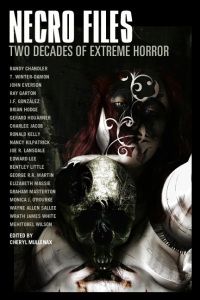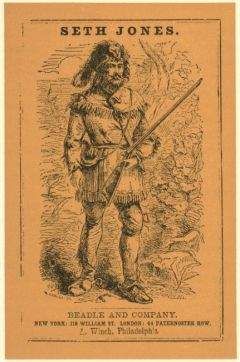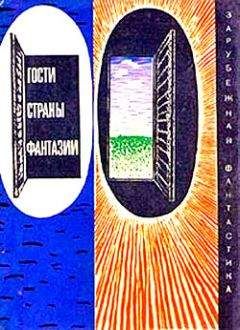Эдвард Лир - Чистый nonsense (сборник)
Юный недоросль
In medio Tutorissimus ibis.
«Внемли Наставникам твоим»
Когда-то недоросль один,
И весел, и пригож,
В усадьбе возле моря жил
И был вполне хорош.
Коровы, кошки, псы, ослы,
Лошадка и овца,
И птицы в клетке и в лесу —
Любили все мальца.
Решили как-то шесть мужей
И дама, всемером:
«Должно нам парня абучать,
Пока не грянул гром».
Радитель научал его
Читать, писать, щитать,
Латини, Граммаалгебре,
Слагать и отымать.
Па молвит: «Сил не пощажу,
Но только всё равно
Ты, парень, станешь у меня
Мужом учёным – но…»
«Французский! – молвит Миссис Грей. —
Pour parler dans cette pays —
Je cris, qu’il parlera bien,
Mệme comme un Francais – Mais…»
Синьор же Гамбиносси: «Si
Progresso si farà,
Lo voglio insegnare qui,
La lingua mia, – ma…»
Тут Мистер Грамп: «Ботании
И Матике к тому ж
Мальца я научу, и он
Вперёд рванётся – уж…»
А Джеймс: «Его я научу
Мойнастике: тогда
Стоять он будет на главе
И мышц крепить – когда…»
Синьор же Бьянки: «Lascia far; —
La musica da me,
Ben insegnata gli serà; —
Farà progresso, – Se…»
И Эдмунд Лир: «Он малевать
Дворец, избу, гумно,
Деревья, горы, города
Враз наловчится – но…»
И, взявшись за руки, они
Запели всемером:
«О! Станет юный недоросль
Абученым мужом!»
Mrs Jaypher
to be read ‘sententiously and with grave importance’
Mrs Jaypher found a wafer
Which she stuck upon a note;
This she took and gave the cook.
Then she went and bought a boat,
Which she paddled down the stream,
Shouting, ‘Ice produces cream,
Beer when churned produces butter!
Henceforth all the words I utter
Distant ages thus shall note —
‘From the Jaypher Wisdom-Boat.”
Mrs Jaypher said, ‘It’s safer
If you’ve lemons in your head;
First to eat, a pound of meat,
And then to go at once to bed.
Eating meat is half the battle,
Till you hear the Lemons rattle!
If you don’t, you’ll always moan,
In a Lemoncolly tone;
For there’s nothing half so dread —
Ful, as Lemons in your head.’
Миссис Джейфер
Читать «назидательно и с особой важностью»
Миссис Джейфер видит в сейфе
Пачку пухлую банкнот;
В краткий срок берёт челнок
И гребёт на нём вперёд,
И, гребя вперёд, орёт:
«Сливки порождает лёд,
Масло – коль взбивают – пиво!
Слово каждое красиво —
И пускай хранят века
«Мудрость Джейфер-челнока».
Миссис Джейфер: «Коль не дрейфя
Держишь в голове лимон,
Ты допрежь фунт мяса съешь,
И марш в постель, и сразу в сон».
Кушай мясо упоённо,
Слушай перестук лимонный!
А не будешь слушать коль,
В грусть впадёшь и в лимонхоль;
Хуже нету умилён —
Но в башке держать Лимон».
Incidents in the Life of my Uncle Arly
O my aged Uncle Arly!
Sitting on a heap of Barley
Thro’ the silent hours of night, —
Close beside a leafy thicket: —
On his nose there was a Cricket, —
In his hat a Railway-Ticket; —
(But his shoes were far too tight.)
Long ago, in youth, he squander’d
All his goods away, and wander’d
To the Tiniskoop-hills afar.
There on golden sunsets blazing,
Every morning found him gazing, —
Singing – “Orb! you’re quite amazing!
How I wonder what you are!”
Like the ancient Medes and Persians,
Always by his own exertions
He subsisted on those hills; —
Whiles, – by teaching children spelling, —
Or at times by merely yelling, —
Or at intervals by selling
“Propter’s Nicodemus Pills.”
Later, in his morning rambles
He perceived the moving brambles —
Something square and white disclose; —
‘Twas a First-class Railway-Ticket;
But, on stooping down to pick it
Off the ground, – a pea-green Cricket
Settled on my uncle’s Nose.
Never – never more, – oh! never,
Did that Cricket leave him ever, —
Dawn or evening, day or night; —
Clinging as a constant treasure, —
Chirping with a cheerious measure, —
Wholly to my uncle’s pleasure
(Though his shoes were far too tight.)
So for three-and-forty winters,
Till his shoes were worn to splinters,
All those hills he wander’d o’er, —
Sometimes silent; – sometimes yelling; —
Till he came to Borley-Melling,
Near his old ancestral dwelling; —
(But his shoes were far too tight.)
On a little heap of Barley
Died my aged uncle Arly,
And they buried him one night; —
Close beside the leafy thicket; —
There, – his hat and Railway-Ticket; —
There, – his ever-faithful Cricket; —
(But his shoes were far too tight.)
Эпизоды жизни моего дяди Арли
О мой Арли незабвенный!
Ночью на копне ячменной
Он сидел в тени ольхи:
На носу – Сверчок дотошный,
Шляпа, железнодорожный
В ней билет пустопорожний
(Жутко жали башмаки).
В юности, давно когда-то,
Жил он праздно и богато,
Всё спустил, побрёл к Холмам.
Там прижился, наблюдая
Ход светил и распевая:
«Солнце! Сфера золотая!
Ты загадка!» – по утрам.
Словно перс или мидянин,
Он трудился, неустанен,
Чтобы жить среди Холмов —
Детям знанья отдавая,
Временами завывая
И недужным продавая
Груды разных порошков.
Как-то на прогулке ранней
Углядел квадратик странный —
На земле билет белел;
Дядя Арли встрепенулся
И поднять его нагнулся,
Тут Сверчонок подвернулся,
Прыг – и на нос Арли сел.
Так они и задружились —
Пили, ели, спать ложились
Неразлейные дружки;
Пел Сверчок не умолкая,
Вкусу дяди потакая,
Арли нравилась такая
Жизнь (хоть жали башмаки).
Сорок три зимы и лета
Он бродил по белу свету,
Башмаки стирая в прах;
И пришёл – то напевая,
То молча, то завывая —
На порог родного края
(В жутко жмущих башмаках).
Ночью на копне ячменной
Умер Арли незабвенный,
Погребён в тени ольхи;
С ним Сверчок его надёжный,
Шляпа, железнодорожный
Тот билет пустопорожний
(Жали жутко башмаки).
* * *
But Ah! (The landscape painter said.)
A brutal fly walks on my head
And my bald skin doth tickle;
And so I stop distracted quite,
(With itching skin for who can write?)
In most disgusting pickle.
* * *
Ах! (Пейзажист зашёлся аж).
Ползёт по голове букаш,
И плешь свербмя свербит;
Терпеть не в силах адский зуд,
Бросаю кисть (попишешь тут?),
Унижен и убит.
* * *
It is a virtue in ingenuous youth,
To leave off lying and return to truth,
For well it’s known that all religious morals
Are caused by Bass’s Ale and South Atlantic Corals.
* * *
Ведёшь себя достойно, молодёжь,
Когда не лжёшь, но к истине идёшь,
Всяк знает: суть религий и морали
Вся в Пиве Басс и в Атлантическом Коралле.
* * *
When “Grand old men” persist in folly
In slaughtering men and chopping trees,
What art can soothe the melancholy
Of those whom futile “statesmen” teaze?
The only way their wrath to cover
To let mankind know who’s to blame-o —
Is first to rush by train to Dover
And then straight onward to Sanremo.
* * *
Когда старьё по глупой воле
На молодых срывает зуд,
Излечит что от меланхолии
Того, кого они грызут?
Есть способ гнев, излитый сдуру,
Смягчить, коль воспринять смиренно —
На поезде умчаться к Дувру,
А там уж прямиком – в Сан-Ремо.
* * *
Saith the Poet of Nonsense
“Thoughts into my head do come
Thick as flies upon a plum.”
* * *
Молвит Нонсенса Поэт:
«Мысли у меня в уме
Кишат, как мухи на хурме».
And this is certain (His Garden)
And this is certain; if so be
You could just now my garden see,
The aspic of my flowers so bright
Would make you shudder with delight.
And if you voz to see my roziz
As is a boon to all men’s noziz, —
You’d fall upon your back and scream —
‘O Lawk! O criky! It’s a dream!’
И это правда (Его сад)
И это правда; коли так,
Тебе не миновать никак
Мой сад, который бы исторг
Дрожь восхищенья и восторг.
Увидя сад, где ярки розы
Мужчинские пленяют носы,
Ты, навзничь пав, издал бы стон:
«Мой Бог! Неужто! Это сон!»
The Children of the Owl and the Pussy-Сat
(An incomplete fragment of a sequel to ‘The Owl and the Pussy-Сat’)
Our mother was the Pussy-Сat, our father was the Owl,
And so we’re partly little beasts and partly little fowl.
The brothers of our family have feathers and they hoot,
While all the sisters dress in fur and have long tails to boot.
We all believe that little mice
For food are singularly nice.
Our mother died long years ago. She was a lovely Сat.
Her tail was 5 feet long, and grey with stripes, but what of that?
In Sila forest on the East of fair Calabria’s shore
She tumbled from a lofty tree – none ever saw her more.
Our owly father long was ill from sorrow and surprise,
But with the feathers of his tail he wiped his weeping eyes.
And in the hollow of a tree in Sila’s inmost maze
We made a happy home and there we pass our obvious days.
From Reggian Cosenza many owls about us flit
And bring us worldly news for which we do not care a bit.
We watch the sun each morning rise, beyond Tarento’s strait;
We go out – – – – – before it gets too late;
And when the evening shades begin to lengthen from the trees
– – – – – as sure as bees is bees.
We wander up and down the shore – – – – —
Or tumble over head and heels, but never, never more
Can see the far Gromboolian plains – – – – – —
Or weep as we could once have wept o’er many a vanished scene:
This is the way our father moans – he is so very green.
Our father still preserves his voice, and when he sees a star
He often sings – – – to that original guitar.
– – – – – – – – – – – – – —
– – – – – – – – – – – – – —
The pot in which our parents took the honey in their boat,
But all the money has been spent, beside the ₤5 note.
The owls who come and bring us news are often – —
Because we take no interest in poltix of the day.
Дети Совёнка и Кошечки-Киски




